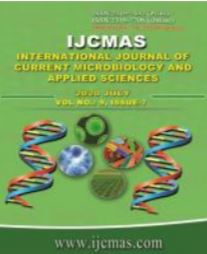


 National Academy of Agricultural Sciences (NAAS)
National Academy of Agricultural Sciences (NAAS)

|
PRINT ISSN : 2319-7692
Online ISSN : 2319-7706 Issues : 12 per year Publisher : Excellent Publishers Email : editorijcmas@gmail.com / submit@ijcmas.com Editor-in-chief: Dr.M.Prakash Index Copernicus ICV 2018: 95.39 NAAS RATING 2020: 5.38 |
This review has focused on how biofortiï¬Âcation can rescue the global micronutrient malnutrition. Various methods have been adopted and perhaps still in use to provide the body with nutrients that are not readily available in diet. Examples include, Food supplements and Diet alteration which involves eating different plant based food to provide these essential micronutrients to the body. Micronutrient deficiencies is usually referred to “hidden hunger” and it is the leading cause of many diseases in sub-Sahara Africa especially amongst the low income earners that cannot afford the food supplements that are readily available in the city. Biofortiï¬Âcation is a process of improving nutritional proï¬Âle of plant-based foods through agronomic interventions, genetic engineering, and plant breeding. This has proven effective in Biofortified Golden rice, Wheat, Cassava and Maize etc. In health, biofortified food/crops has no well documented adverse effect and as helped to ensure bioavailability of micronutrients such as Zinc, Iodine, Iron, Selenium, Carotenoids and Vitamin A which are essential for healthy living and if not present would have severe adverse effect. This review has explored different advantages of biofortification and provided wealth of knowledge that can be of immense benefits for farmers in crop cultivation using biofortification techniques and to encourage the consumption of biofortified food to end malnutrition globally. Biofortification is a technology with grave advantage to reduce or eradicate micronutrient deficiencies globally. Proper orientation and awareness should be administered to farmers and the masses to encourage the use of this technological advancement to help malnourished people globally. Also government policies should be such that to accommodate the use of biofortified crops and foster development in Agriculture sector. However, further research should encourage detecting and affirming any adverse health implications and environmental hazard.
 |
 |
 |
 |
 |